In my opinion the least taught war in United States classrooms must be the Korean War (1950-1953) mainly due to what I call unintentional ignorance. When I was in high school during the late 1970s, the Korean War was mentioned, but not covered in any real depth mainly because it was still considered recent history. What many of my generation learned about the Korean War came about haphazardly from watch the television series MASH that aired from (1972 to 1983) which I find mystifying since my generation seemed to be fixated on 1950s nostalgia mainly regarding the decade’s music and the clothing styles.
Things hadn’t improved by the late 1990s when I was teaching in the classroom and writing about my experience. The Korean War was barely mentioned in the teaching standards, the long litany of skills and content I was required to teach, and student were and still are expected to master.
Most teachers including myself when I was in the classroom sacrifice areas of American History due to time constraints to cram as much as possible into the school year, but aren’t we cheating students on important events that would help to explain the overarching Cold War era?
Aren’t we throwing away the service of the men who served during the Korean War by not covering the war for students the best we can?
I also found it difficult to locate dependable classroom resources about the war to use in my classroom. Even today pick up any history textbook, thumb through pages, and you see that very little is given about the Korean War. Most of the time the Koren War is treated as a “breather” of sorts between the end of World War II and the startup of the Vietnam War. It was done that way when I was in school, and in most classrooms, it’s still treated that way.
This is just another example why teachers cannot rely on textbooks as a complete tool to help them frame standards into a viable curriculum. They must go outside of the textbook to obtain resources that give ample content and a complete picture of the events in Korea.
My favorite source happens to be memoirs – first-hand accounts of the events from those who were there. In the case of Korea, I had a memoir fall into my lap while I was writing my weekly history column for the Douglas County Sentinel, my local newspaper.
In 2014, one of the former editors of the newspaper wrote a memoir which covers many of his life experiences, but mainly his exploits in the U.S. Navy aboard the USS Sicily during the Korean War.
The book is called Excitement!! In War and Peace by W. Harris Dalton (1928-2023). The cover of the book I’ve placed below features a picture of the author (extreme left standing) with some of his buddies. You can click the title link to find out more about the book.
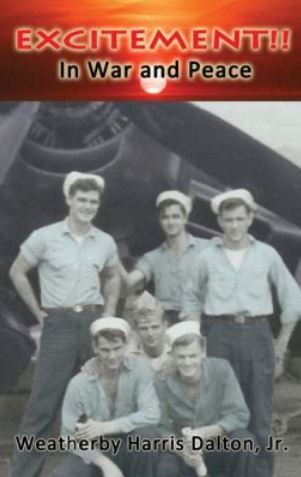
While there are numerous snippets of information in Mr. Dalton’s book that could be extracted and infused into a teacher’s Korean War curriculum here are a few things I found extremely interesting:
Mr. Dalton spent three years aboard the USS Sicily described in Collier’s magazine as “the phantom ship” due to the fact it was always on the move and the enemy didn’t know where it would be next. Mr. Dalton states, “To her credit ‘the Queen’ was victorious in two of the bloodiest battles – Pusan and Hungnam – in American history. She was also there providing close air support for the marine’s historic landing on Inchon that turned the tide of the battle on the peninsula and forced the fight for the Yalu River.”
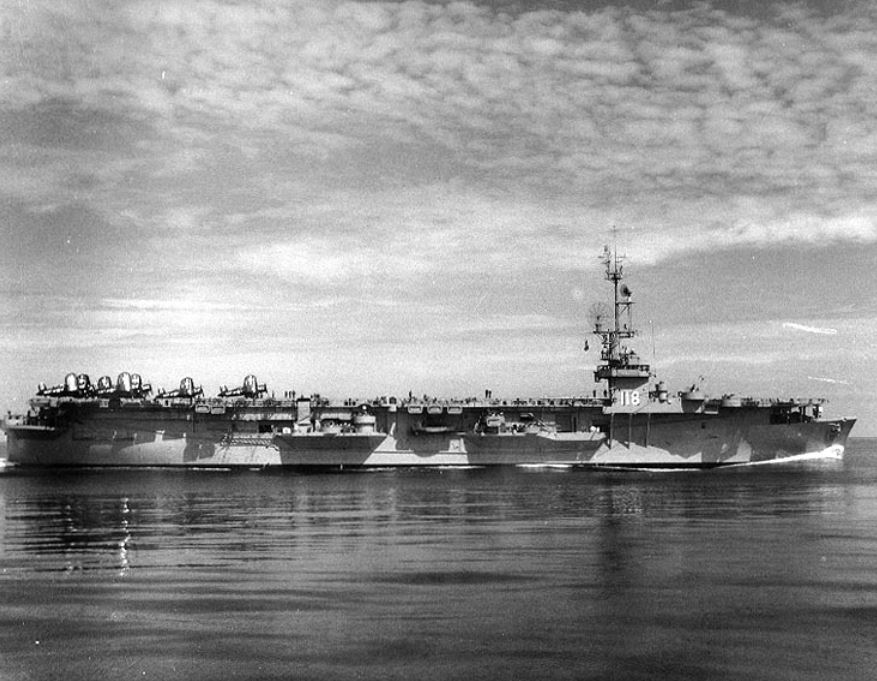
I don’t know about you, but just from that snippet from Mr. Dalton’s book I want to Google a few key words for more information. I’ve saved you the trouble by hyperlinking to them.
The second interesting thing mentioned in Dalton’s book involved the Black Sheep Squadron which was re-commissioned during the Koren War and flew Corsairs off the Sicily’s flight deck. As Dalton states in his book, “Navy and Marine Corsair pilots were available, and they made perfect sense for the Korean conflict against North Korea which had no air force and navy.”
The photo below shows some of the Black Sheep Squadron aircraft on the flight deck of the Sicily.
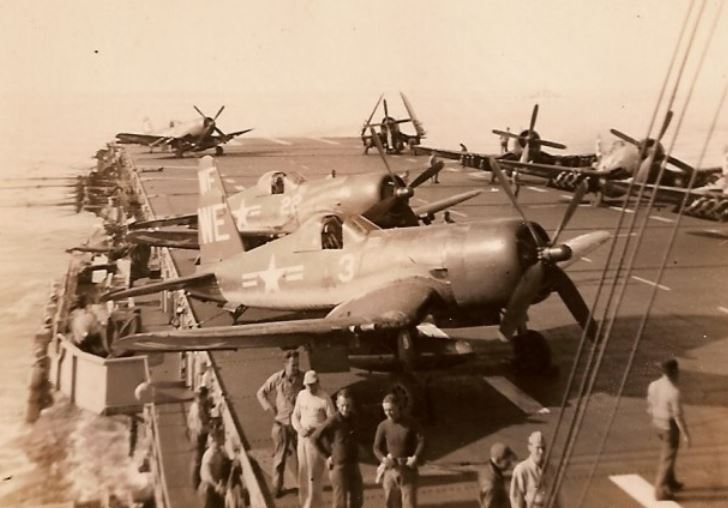
In this book, Mr. Dalton gives great insight to a Black Sheep Squadron mission on Christmas Eve, 1950 where they had been sent out to check on what was reported to be a group of guerillas heading towards American troops. The Black Sheep Squadron planes found the suspected guerillas and completed a fly-over. They found the group contained a large concentration of women and children. As they flew over the women held their babies up in what was interpreted as a friendly gesture. The group seemed like friendly refugees, but later these same friendly refugees wiped out an entire Marine group. Members of the squadron were immediately sent out on a search and destroy mission.
One of the squadron members told to Mr. Dalton, “I circled around, and when I was directly over them, I dropped a napalm bomb right in the center of the marauders. We then circled the scene until we had established there were no survivors. I knew they had killed my fellow marines, and it wouldn’t have been so bad if it hadn’t been Christmas Eve.”
Another thing I took away from Dalton’s memoir was his discussion regarding operations involving Chinese and Russian forces stating, “What had begun as a mission to drive North Korea out of South Korea escalated into an overt fight against North Korean and Chinese forces when we moved up the Yalu River and the surreptitious aggression by the Soviet Union, the bully in the neighborhood.”
Mr. Dalton tells of an incident that was supposedly wiped from official sources regarding a supposed Russian submarine that was headed towards U.S. forces and wouldn’t identify itself. For two hours Mr. Dalton, as radar man, personally filled three pages of his log book regarding messages concerning the location and actions of the submarine which culminated in sightings of an oil slick.
Later when he checked the pages of the logbook, they had been removed with the explanation that the action “had never taken place”. The event never made the news back home, of course.
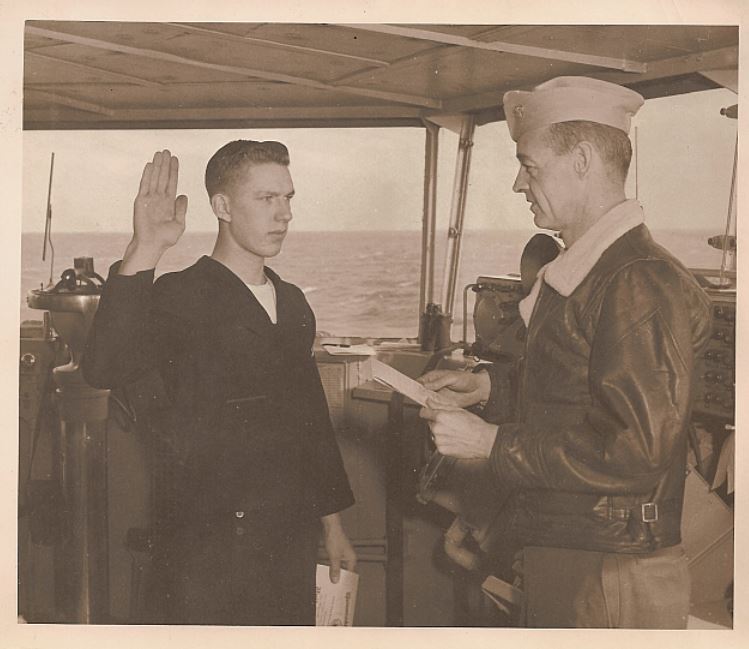
While Mr. Dalton was aboard the USS Sicily John S. “Jimmy” Thach was the ship’s captain. He was famous for his World War II flying exploits, and for his invention of the “Thach Weave,“ a tactic that enabled U.S. fliers to hold their own against the Japanese Zeroes. He is also given credit regarding another tactic referred to as the “big blue blanket.”
Check out Mr. Dalton’s book for even more first-hand war experiences aboard the USS Sicily.
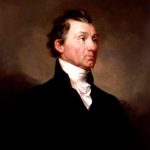
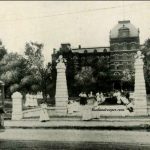

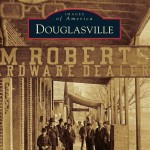
Leave a Reply